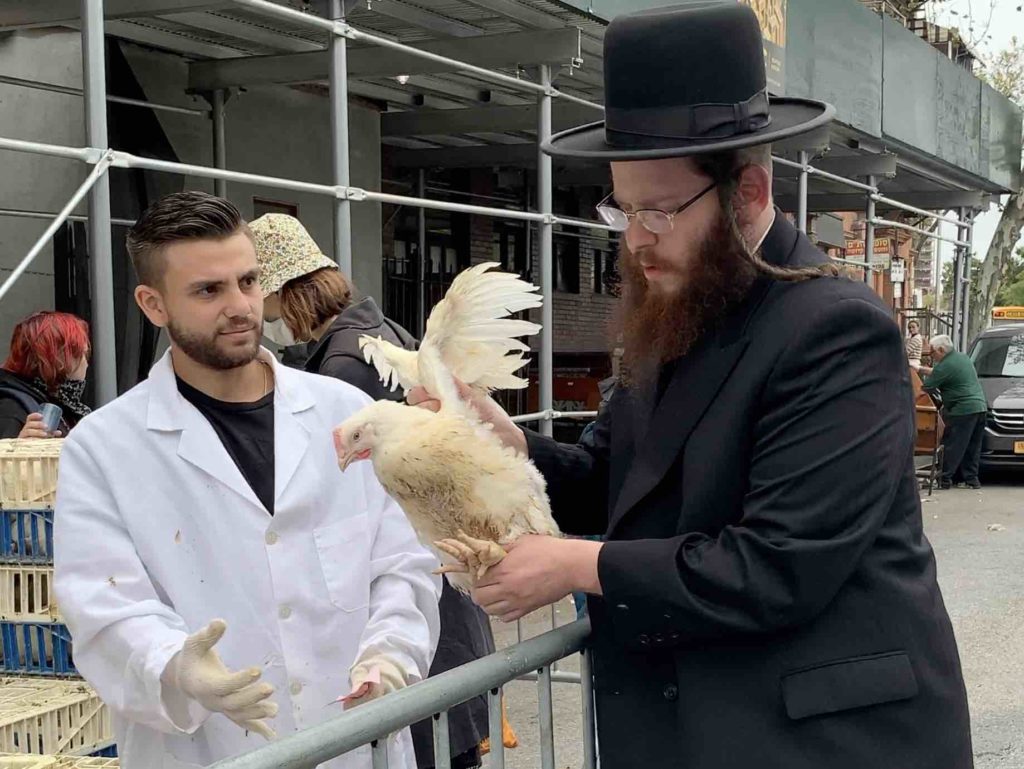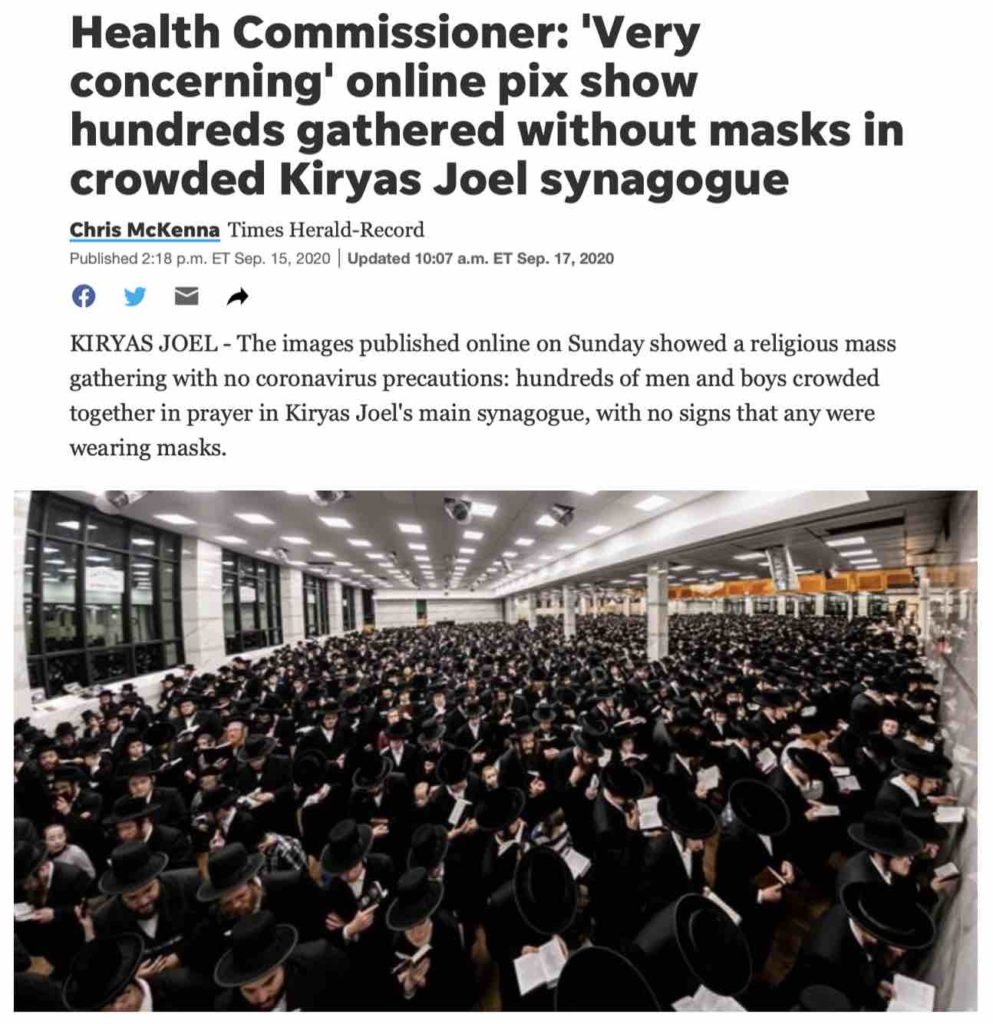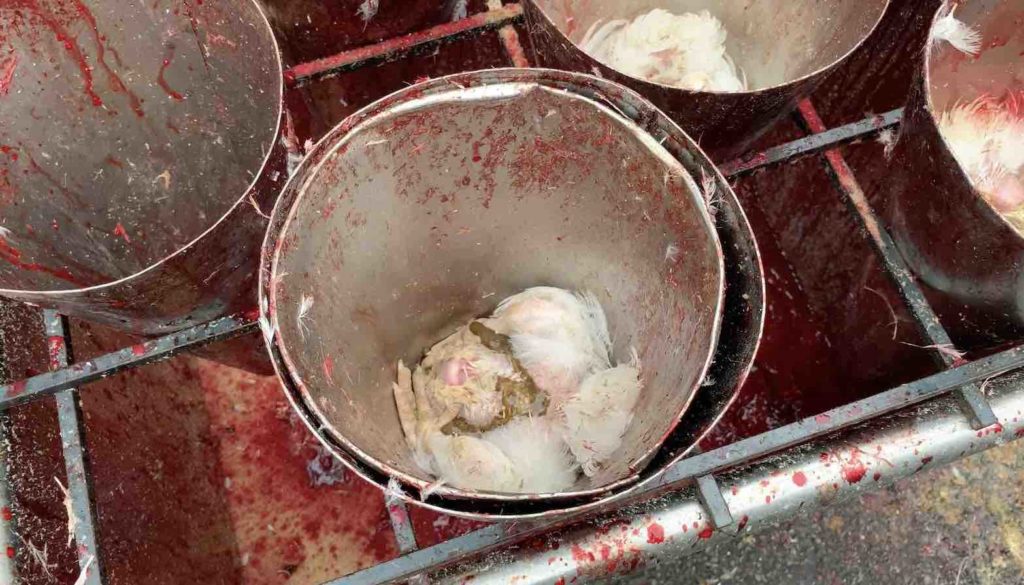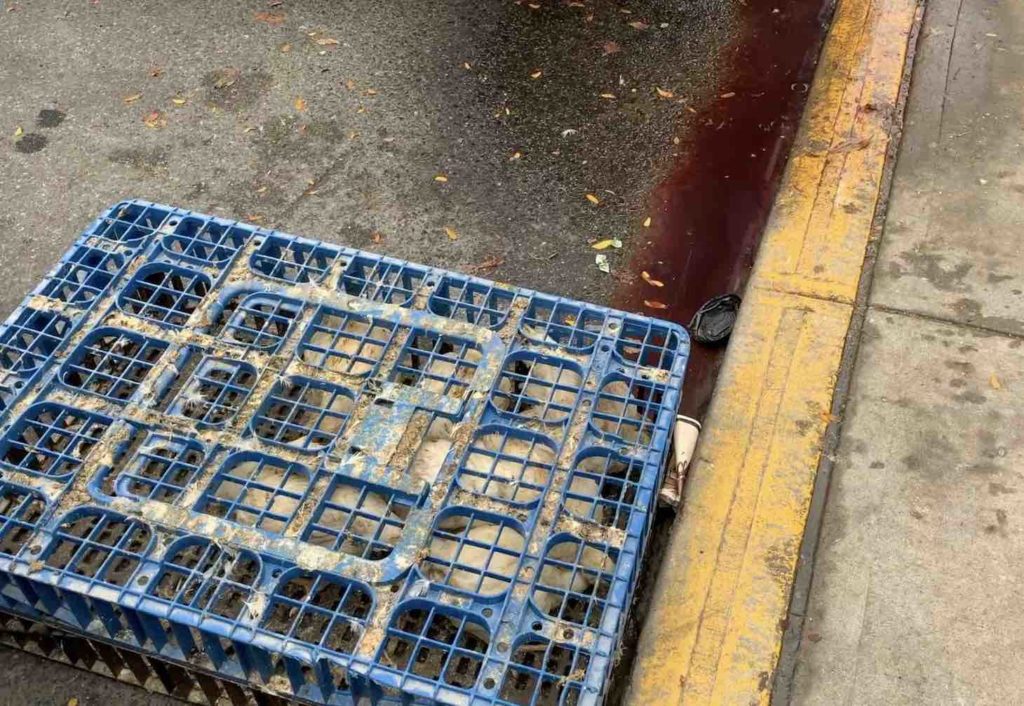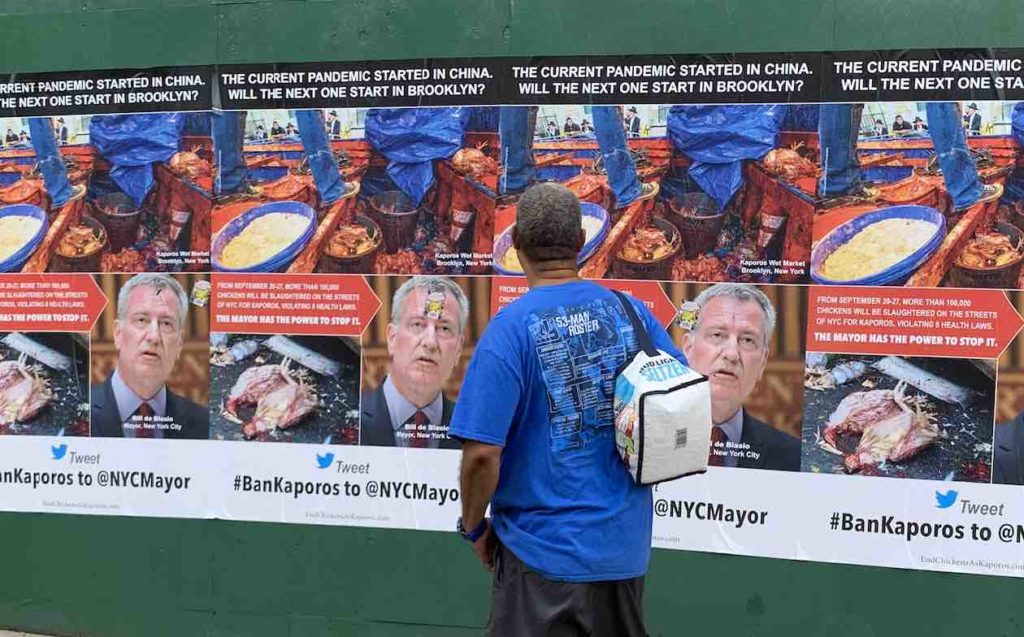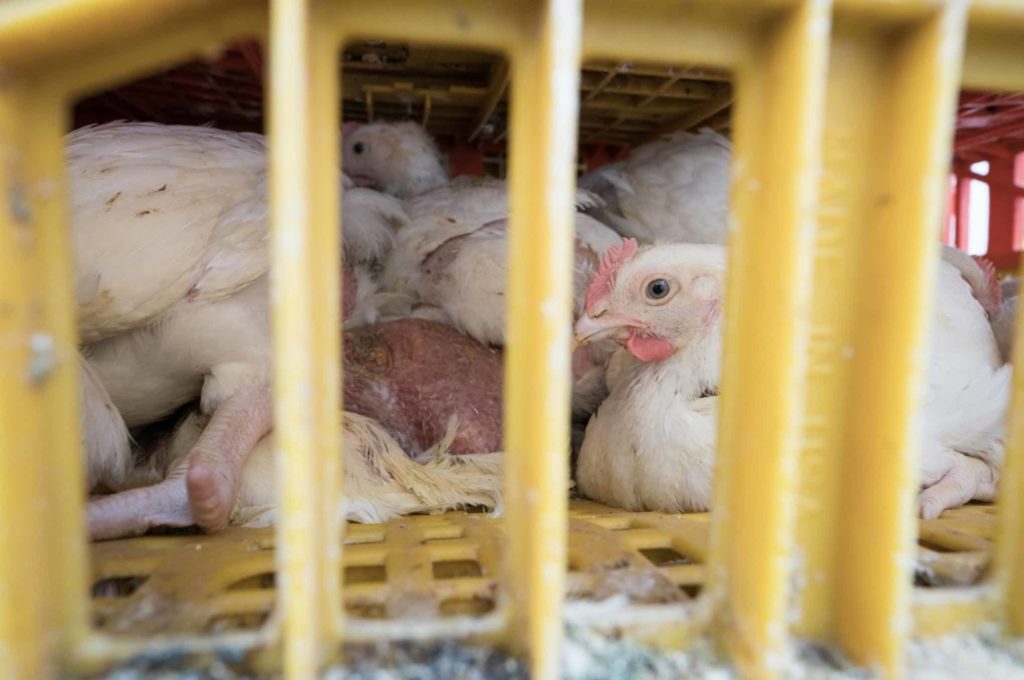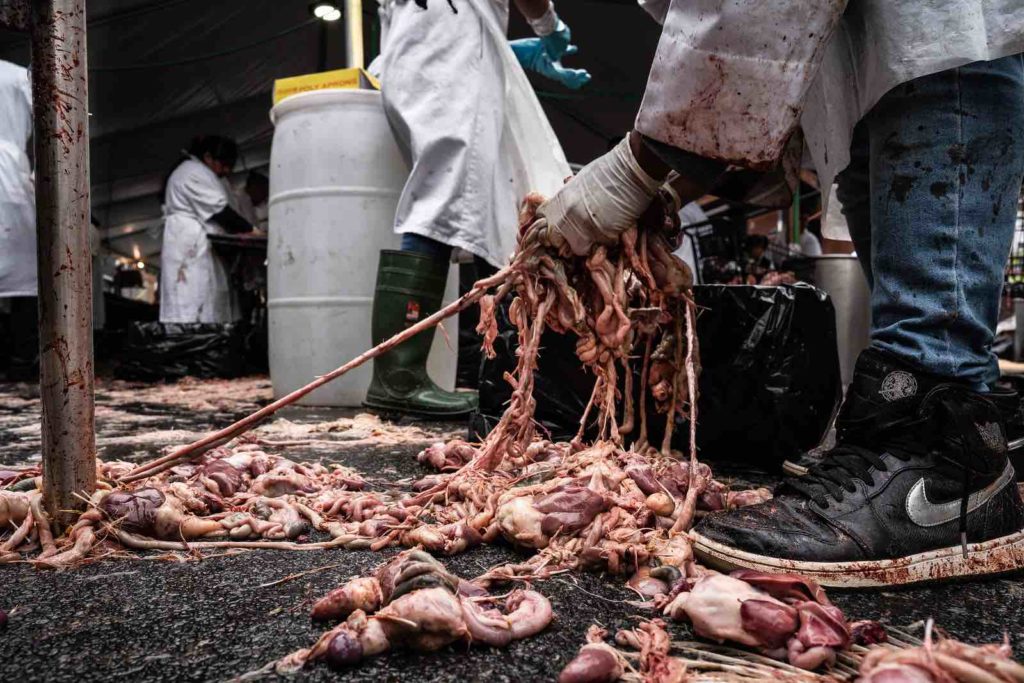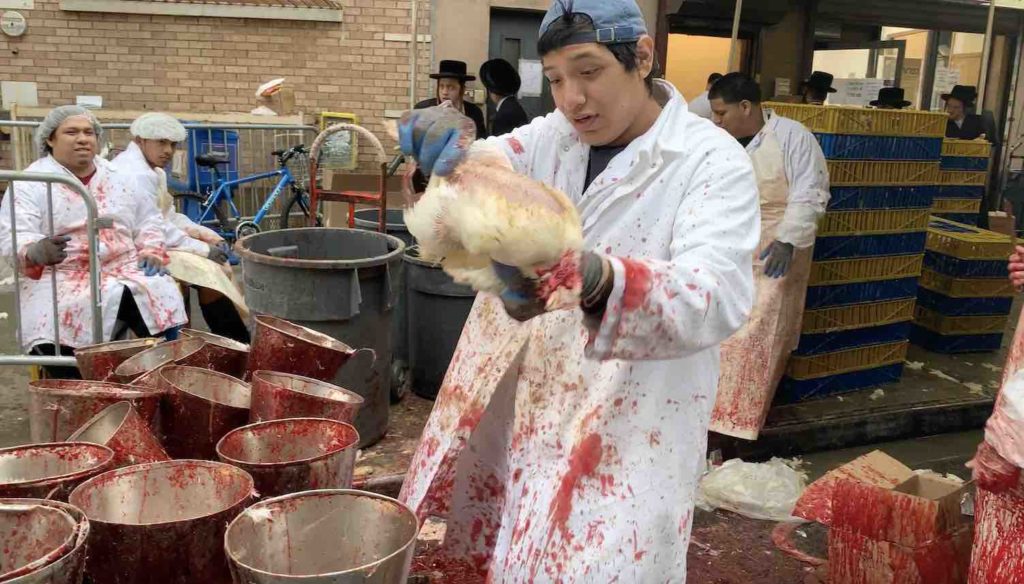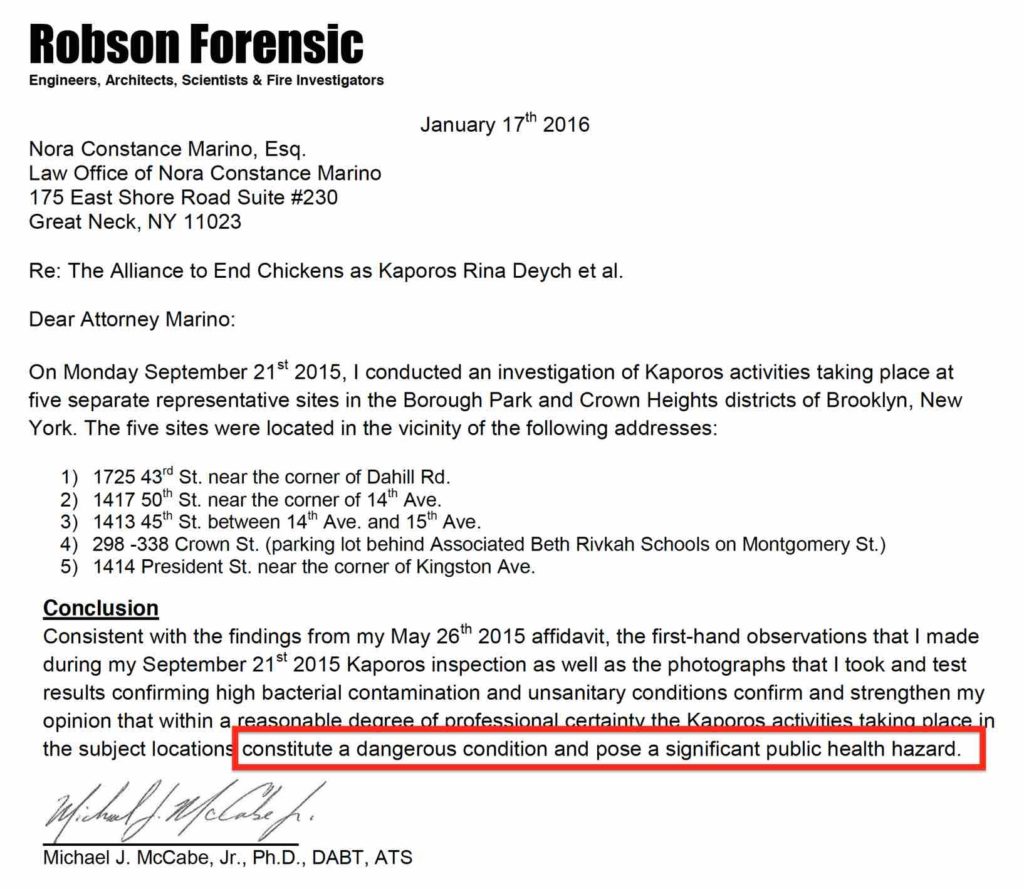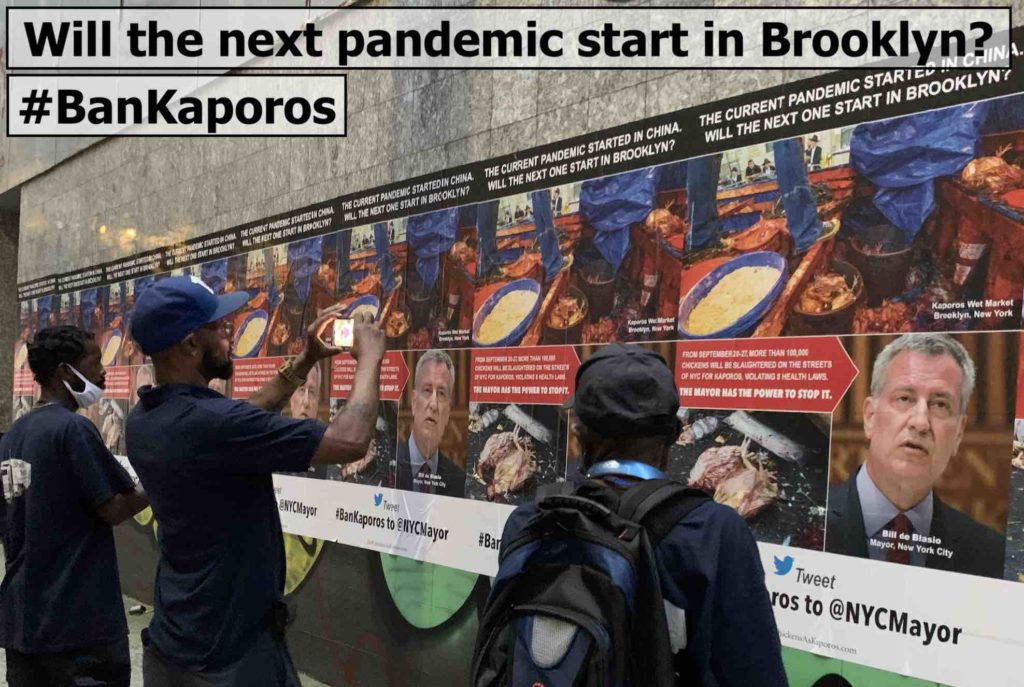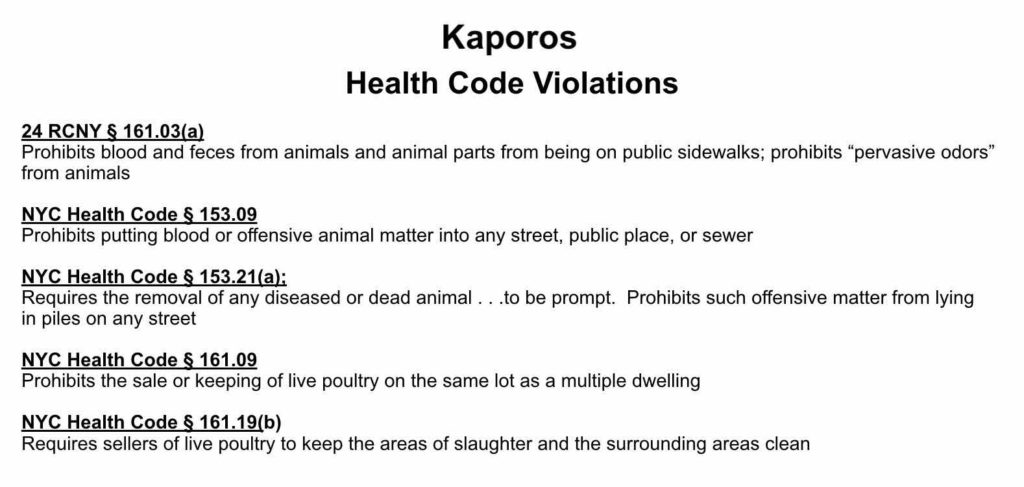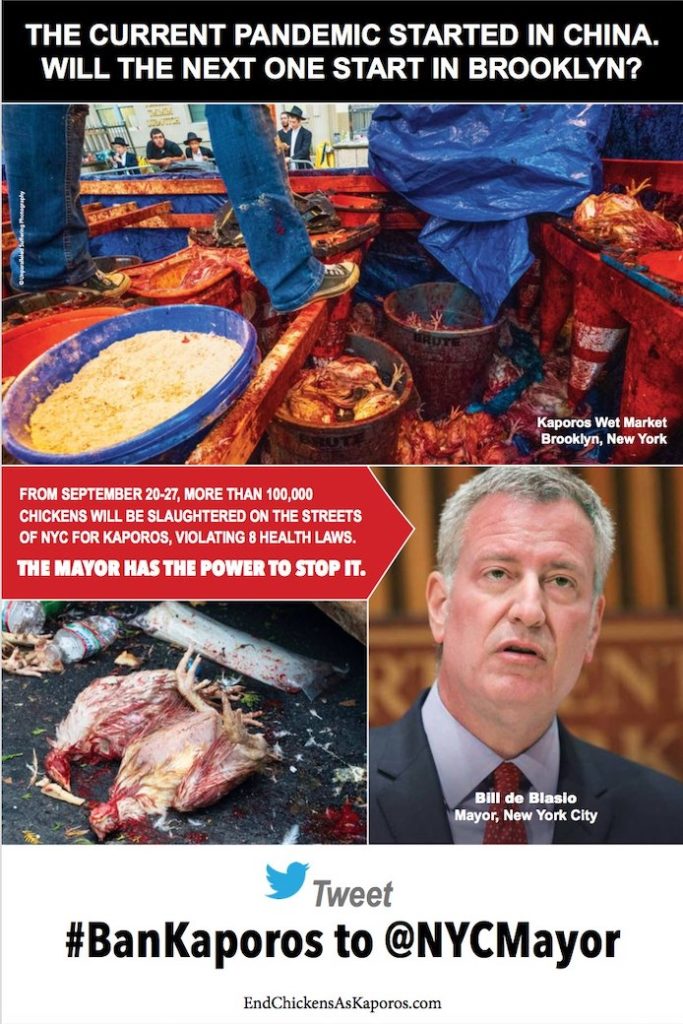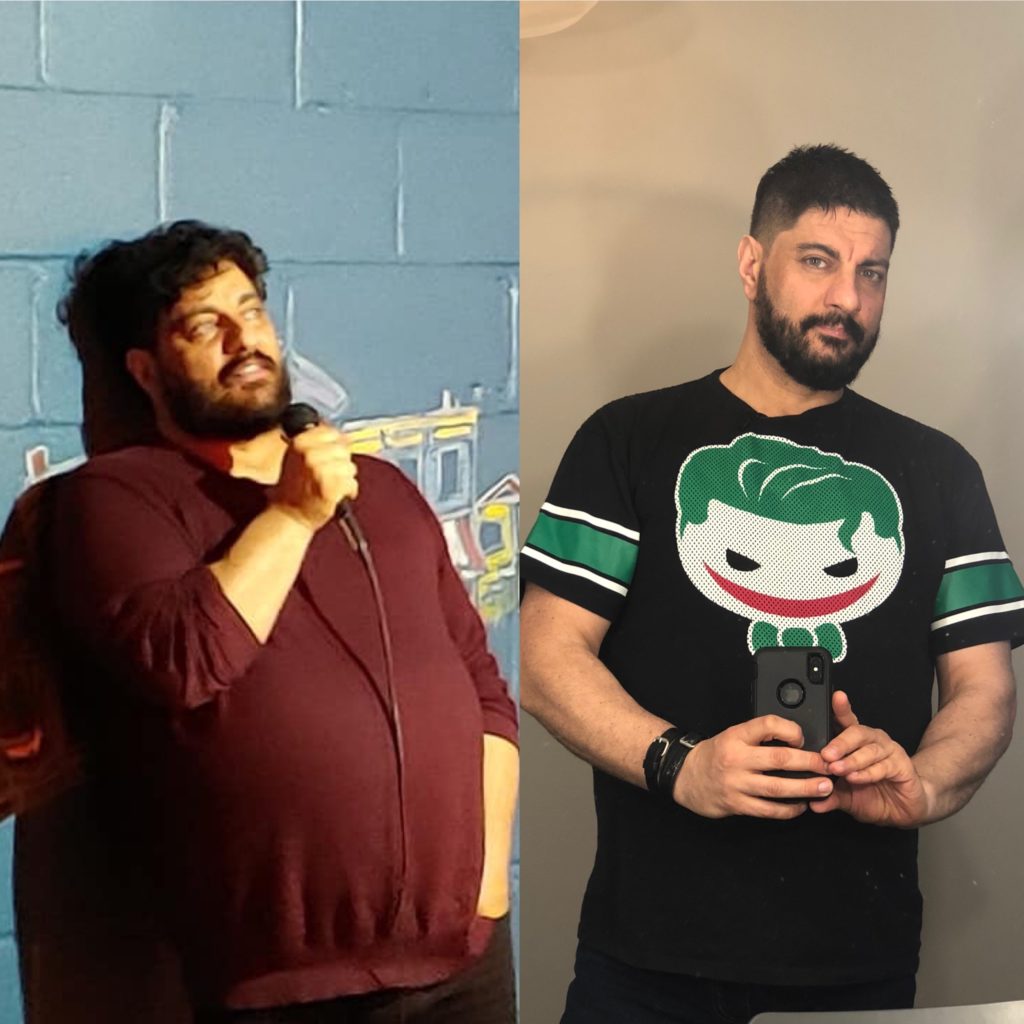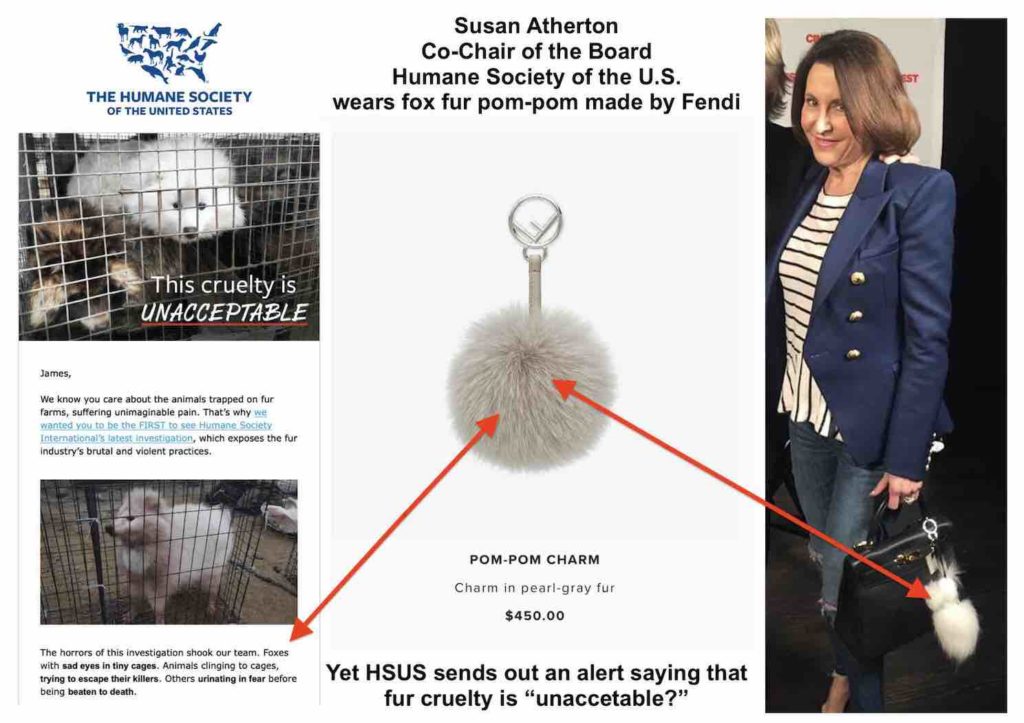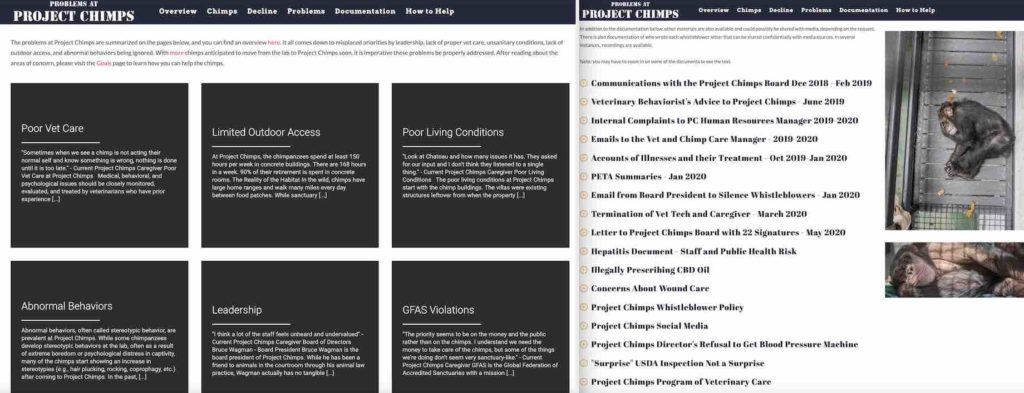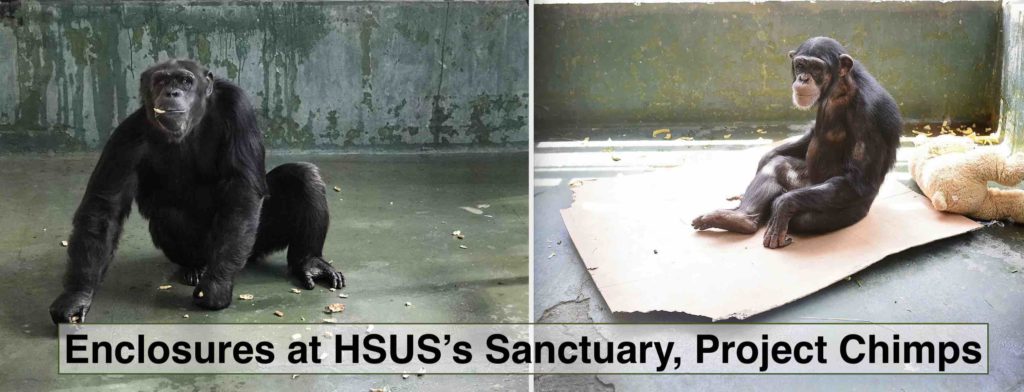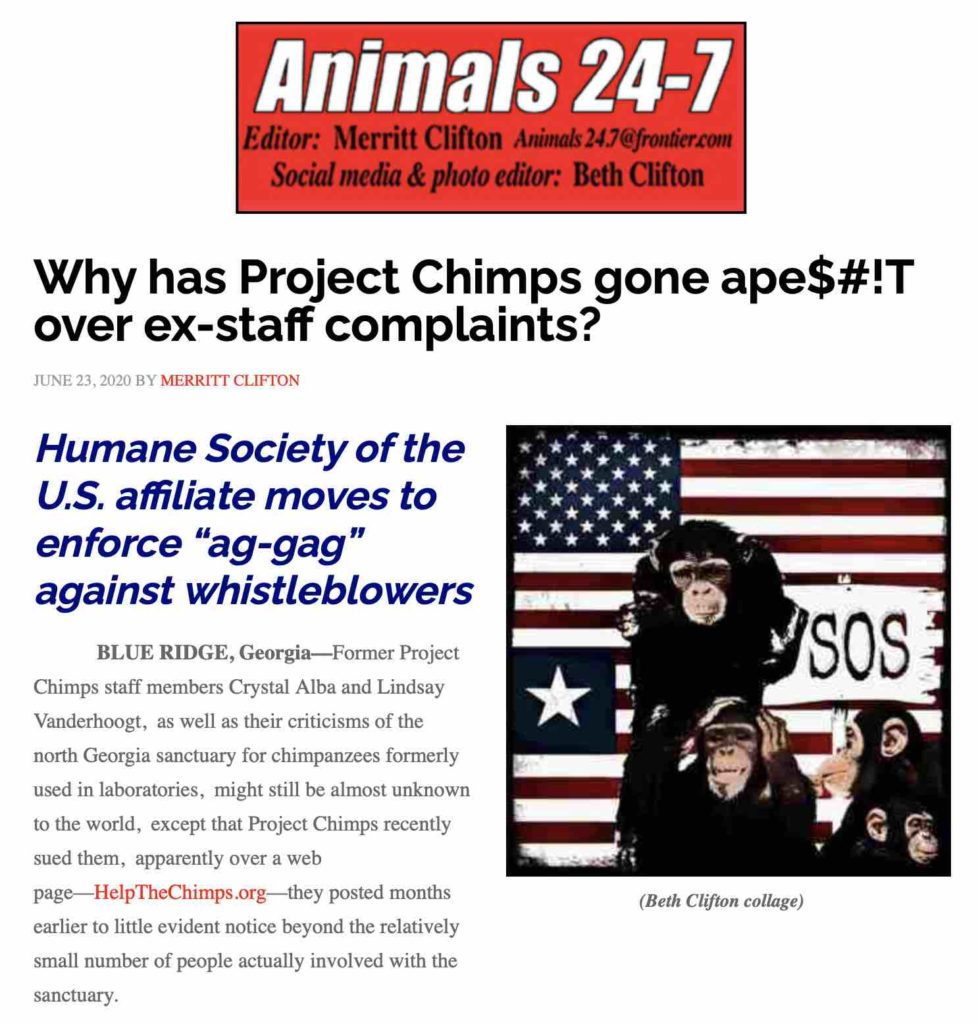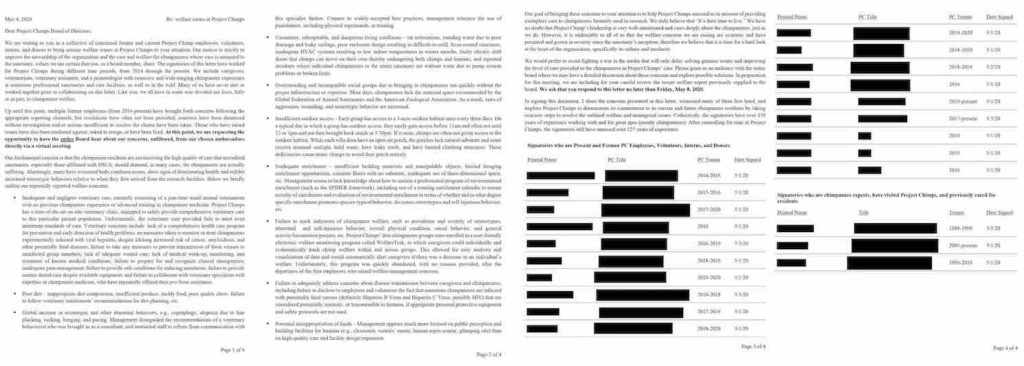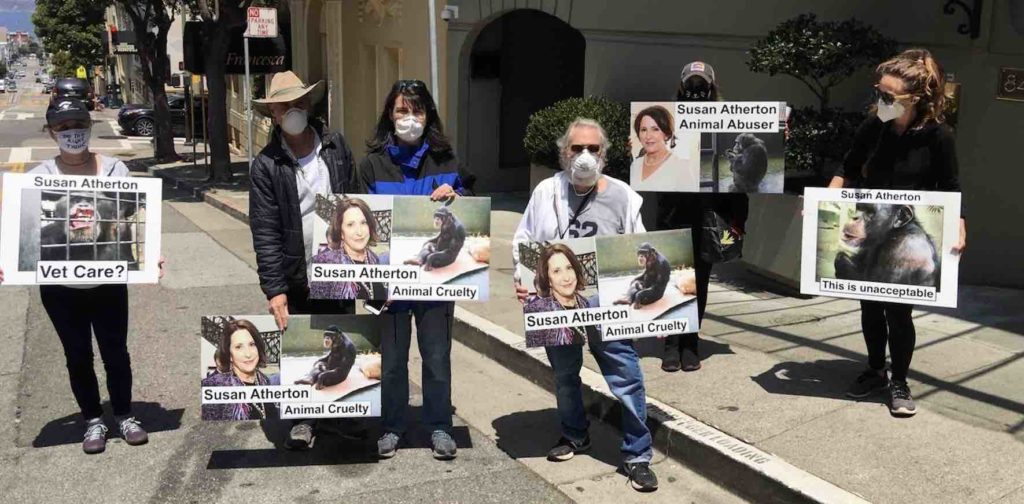Progress For Science Protests HSUS Over Animal Mistreatment at Project Chimps
The News
Over 20 activists with Progress For Science, a Los Angeles-based animal rights group, staged a protest at the Santa Monica home of Humane Society of the United States (HSUS) board member Steven White over the mistreatment of animals at Project Chimps, HSUS’s chimpanzee sanctuary in Georgia.
White and his colleagues on the boards of HSUS and Project Chimps have refused to acknowledge and rectify animal welfare issues raised by 22 former sanctuary employees and volunteers who sent a letter to Project Chimps board to voice their concerns about poor veterinary care, infrequent access to the outdoors (10 hours/week), overcrowding, rushed chimpanzee introductions, a lack of sufficient enrichment in their concrete enclosures and other forms of neglect and deprivation. Two of these individuals, Crystal Alba and Lindsay Vanderhoogt, posted photos, videos and reports documenting the abuse on HelpTheChimps.org after they attempted to effect change from within Project Chimps.
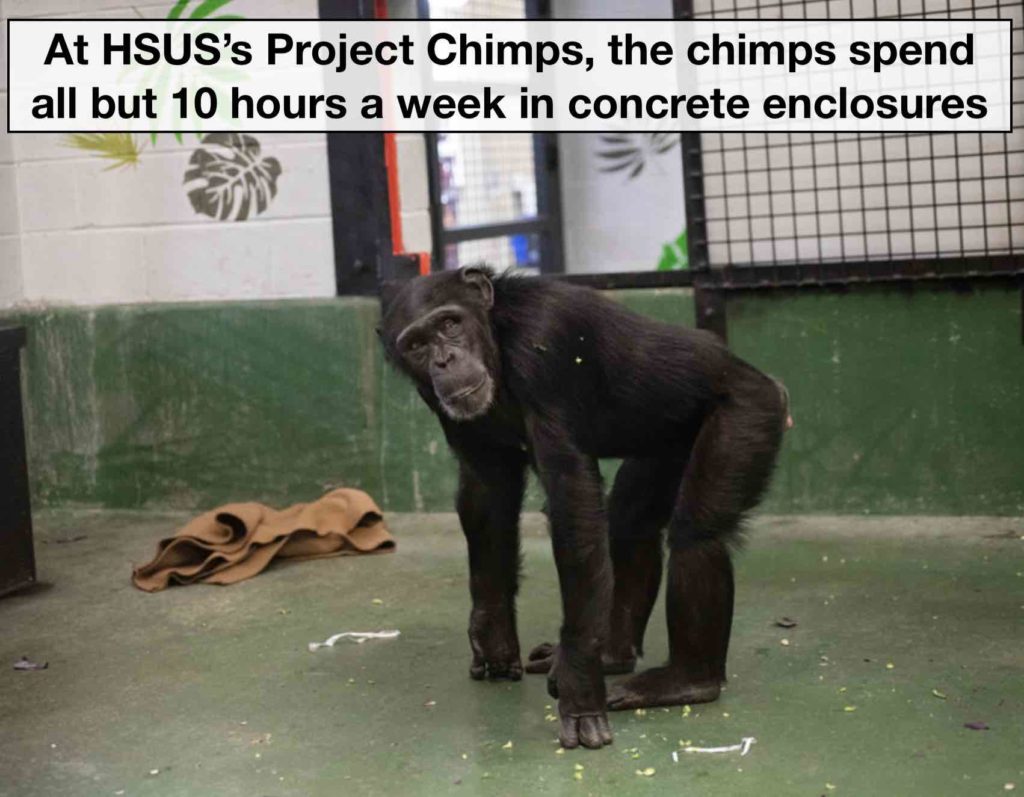
Animal rights activists are demanding that HSUS’s Project Chimps provide the animals in their care with daily access to the outdoors
“The chimps are living in woefully substandard conditions at Project Chimps after being subjected to a lifetime of laboratory experiments,” said Cory Mac, an organizer with Progress For Science. “Instead of attempting to silence credible whistleblowers, Steven White and his colleagues at HSUS should be focused on improving animal care and providing the chimps with a humane retirement.” In August, Project Chimps dropped a federal lawsuit it filed against Alba and Vanderhoogt, who continue to speak out on behalf of the chimps.
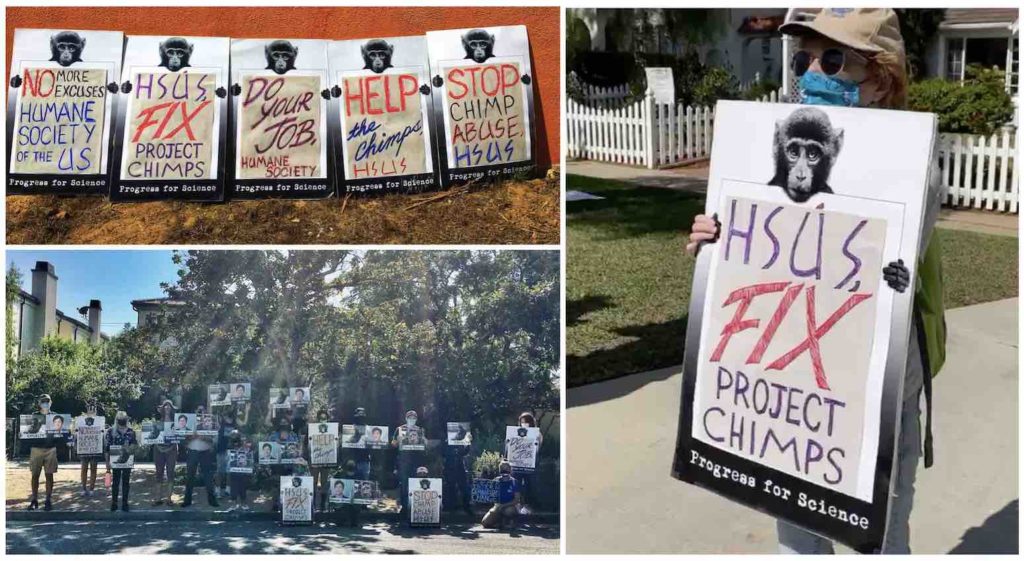
Animal rights activists with Progress for Science protest the Humane Society of the United States (HSUS) over the mistreatment of animals at its Project Chimps sanctuary in Georgia
On July 9th, National Geographic published an in depth, investigative story about the animal cruelty allegations and the lawsuit against the whistleblowers. While it includes statements from both sides, the story paints a grim and disturbing picture of animal welfare that corroborates the allegations of the whistleblowers.
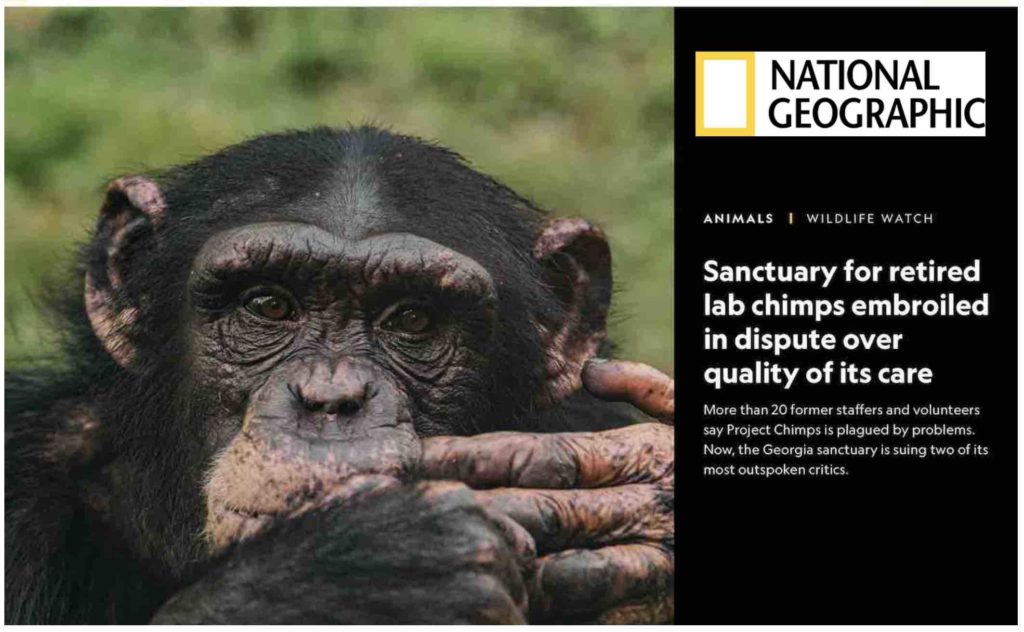
National Georgraphic investigative story about animal mistreatment at HSUS’s chimpanzee sanctuary, Project Chimps
Steven White is the third HSUS board member to be targeted with protests. In San Francisco, primatologist Bob Ingersoll and local activists protested at the Nob Hill home of Susan Atherton, the co-chair of HSUS’s Board of Directors. In New York, animal rights activists with TheirTurn staged two protests at an upscale clothing store owned by HSUS board member Brad Jakeman.
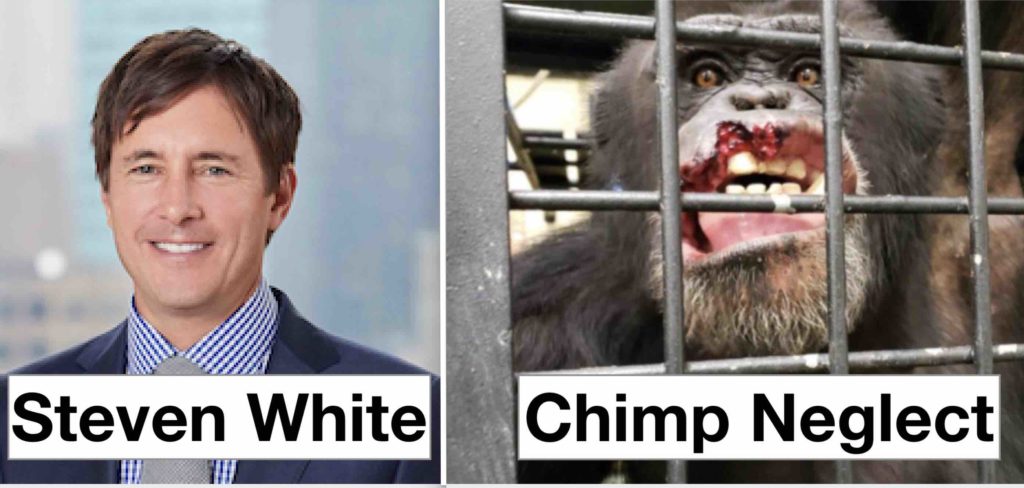
Animal rights activists demand the Steven White and his colleagues on HSUS’s Board of Directors improve animal welfare at Project Chimps
Animal rights activists vow to continue holding HSUS’s board members accountable until they improve the welfare standards at Project Chimps. Among their demands are providing the chimps with daily access to the outdoors; not taking in additional chimps until they can be accommodated humanely and hiring an Executive Director with chimpanzee experience.
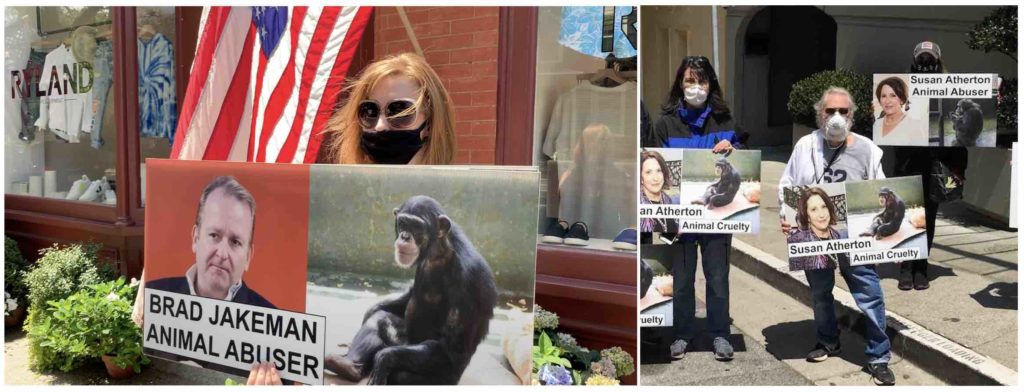
Board members of the Humane Society of the United States (HSUS) have been targeted with protests animal rights activists in Los Angeles, San Francisco and New York who are demanding improved welfare conditions at its Project Chimps sanctuary in Georgia
In its public statements, HSUS asserts that third party inspections have exonerated Project Chimps of the animal cruelty allegations. However, the Global Federation of Animal Sanctuaries (GFAS), a sanctuary accrediting organization, made several animal welfare recommendations after conducting an investigation, in spite of its close financial ties to HSUS. Another inspection that HSUS references in an effort to discredit the welfare allegations was conducted by a veterinarian who HSUS paid $20,000 in “consulting” fees, in spite of the fact that she lives in a different state.
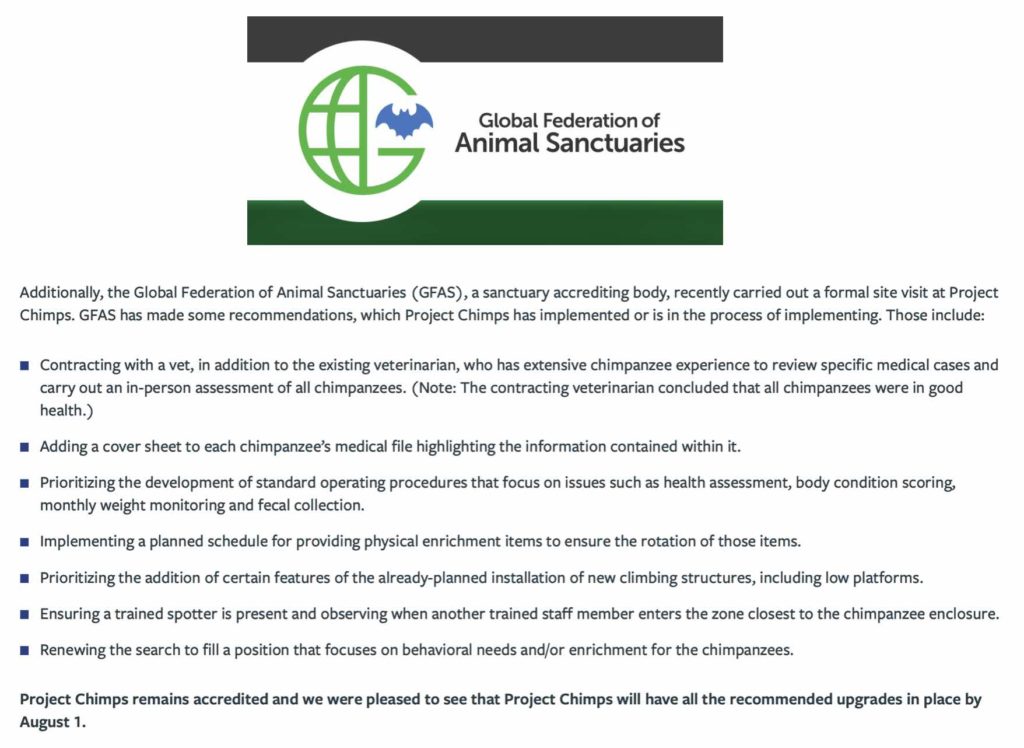
The Global Federation of Animal Sanctuaries (GFAS) made some of the same animal welfare recommendations as the whistleblowers
Among the protesters at Steven White’s home was Carole Raphaelle Davis, a Hollywood actress who recently starred in Madam Secretary. During her Facebook livestream, Davis encapsulated the feelings of many of the activists who participated ‘The Humane Society is the largest animal welfare organization in the country and is sitting on hundreds of millions of dollars; it can easily afford to give these animals the life they deserve, but they don’t and that’s why we won’t back down until they fix this wrong. The mistreatment of these chimps in their care is just not right. It’s not fair.”





